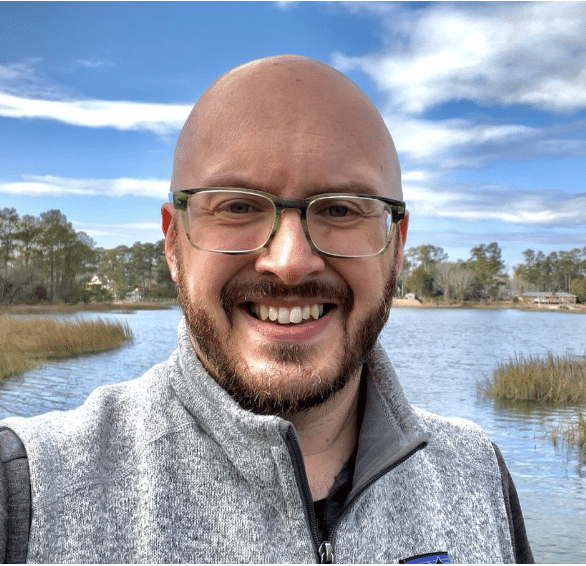I’ve always wondered what it’s like to hire someone for their dream job. You see, in the course of conducting thousands of interviews and hiring hundreds of people, I have yet to meet someone whose dream job is to work in the contact center. As it turns out, it’s just not a career path to which people aspire. Go figure.
All joking aside, I can empathize with the struggle that many contact center leaders face in sourcing, onboarding, and retaining great talent. Current dynamics of the labor market aside, it’s never been an easy task to find the right kinds of people for contact center work. Fortunately, there are a few pieces of advice that I’ve found to be tremendously helpful when hiring contact center agents. If you’re looking for some new hiring tips, consider trying one or all of these things.
One of the earliest pieces of advice I received has enabled me to write better job descriptions, define more effective interview processes, and improve the impact and effectiveness of new hiring training programs. The advice was to document all of the skills, technical experience, or specialized knowledge that was required to be a successful contact center agent. The next step is to take that list of things and break it into three categories.
😩 Finding and retaining great talent sure isn’t easy — get help with the guide to agent centricity by Justin Robbins 👩 👨🏿 👨 👩🏿 👳
2022 Guide to Leading an Agent-Centric Contact Center
- Skills that we expected a candidate to already have. These were the skills that we were hiring for and would evaluate against during the interview process. Did the job require a level of typing proficiency? We’d have them take a typing test. Were we looking for how they’d handle a certain type of scenario? We’d ask situational, behavior-based interview questions that enabled them to demonstrate or articulate their past experience. Bottomline: These are the non-negotiable skills that any new hires would bring to their first day on the job.
- Skills that we expected to train the candidate on. These were the things that we knew could be learned on the job or required unique knowledge that couldn’t be obtained elsewhere. This could include proprietary processes, certain technologies, or skills that you’re willing to invest in developing over time. This list informs your new hire training program and enables you to put nervous candidates at ease when they understand where and how you’ll help to prepare them for the job. Bottomline: These are the skills that you’ll teach to every new hire.
- Skills that uniquely positioned candidates or provide additional levels of value to the business. These were a list of bonus skills that were really attractive to the business or demonstrated the candidates advanced proficiency in an area. Skills that your contact center might hope for in candidates could include fluency in multiple languages, possession of a specialized certification, or flexible shift availability. Bottomline: These are the skills that could help set candidates apart during difficult hiring decisions.
A majority of the agent job postings that I see list previous contact center experience as a requirement. I’ve actually never understood why but, more importantly, have increasingly come to believe that it can be a greater detractor than benefit to hiring. Here are a few experiences that led to my having that belief.
- Old jobs come with old habits and, unfortunately, there are lots of bad habits that can arise in the contact center. You don’t know how those previous contact centers were run and, in my time leading new hiring training programs, a lot of energy and resources were spent to help previous agents change their old ways.
- Being a career contact center agent isn’t the plan for most people. When I look back at the common denominator in why people join a contact center it’s often because they’re looking to get their foot in the door at a business. They intend to move into other departments and roles that align with their education or aspirations. That should be recognized and embraced by the business. Instead of focusing on people who are stuck in a contact center rut, target candidates with aspirations for growth and a background that supports it. By treating their time in the contact center as an investment, you’ll discover that they have higher levels of engagement, deliver exceptional productivity, and become advocates for the contact center long after their time as agents as they grow within the business.
- Work with your talent acquisition team to target new candidate pools. When I led the hiring for a contact center with high season volumes, I had a unique need for agents during the American summer which is bookmarked by Memorial Day (late May) and Labor Day (early September). As you can imagine, when using the same channels that we leveraged to source year-round, full-time talent, it was difficult to find qualified candidates who were okay with only working for three months. We eventually challenged ourselves to target people who would have seasonal availability—think college students home for the summer or teachers with the summer off—and quickly discovered a robust source for our new hires. Other great candidate sources were found when we began recruiting restaurant staff, hotel employees, and other service-oriented industries.
A mentor once told me that the greatest mistake made by companies when onboarding new employees is delaying their opportunity to make an impact. When people start a new job they want to know that what they’re doing matters, and they want to demonstrate that sooner than later. And yet, for many contact centers, the processes that exist today are built to delay the employees’ impact. For example, the interview process and orientation programming might not connect the dots between the agent’s day-to-day work and its impact on the broader customer experience. Another common occurrence? It’s often weeks before agents are fully trained and able to interact with customers. When we don’t use those opportunities to set a vision for our agents, and engage them in making it tangible, they question their value, check out, and look to move on.
The best practice here is this: Use the interview process to highlight the critical value of the agent’s role in your business and strategic impact they could make. Then, once they’ve been hired, continue to build the connection between the work they do every day and the bigger picture of which it’s a part. Don’t ever let their value come into question. Continuously share examples of how they’re making a difference and actively engage them in shaping the organization’s future.
I’ve consistently found that these practices help my teams and I align on our goals and expectations when hiring, expand our realm of qualified candidates, and create a positive first impression and a strong foundation to build upon. But there’s a catch. You can’t do all of these things and then lead an environment that’s anything but agent-centric.
Hiring great people and then neglecting to invest in their long-term development, deploying processes that undermine their best skills and expertise, or leveraging technologies that make doing their job difficult is a surefire way to find yourself in a repeating pattern of turnover. Not sure what it means to be agent-centric? That’s okay. I wrote an eBook to guide leaders like you down the path of running an agent-centric contact center. Click here to check it out for yourself.
Originally published May 16, 2022, updated Aug 06, 2024





